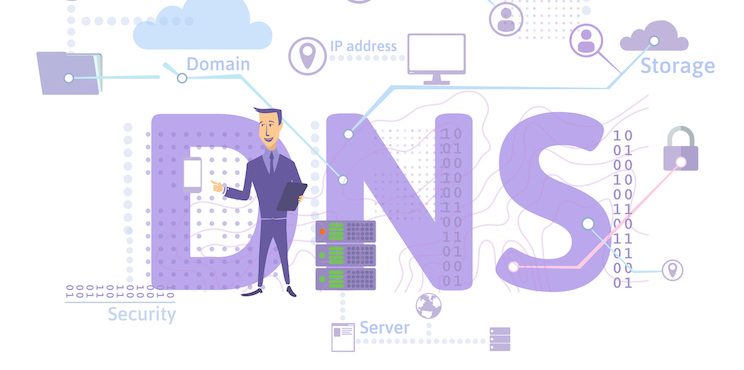The Types of Web Hosting Explained
Let’s start by answering a question. What is web hosting? Web hosting is a service that allows organizations and/or individuals to post a web-formatted document/s or content to a computer (called a server) that is connected to the internet. This hosting service is a business that provides the technologies and services needed for the website or webpage to be viewed on the Internet. This is web hosting in the simplest terms.
Below is an example of a very simple web page.
<!DOCTYPE html>
<html>
<head>
<title>My Super Awesome Page</title>
</head>
<body>
<p>This is an example of a very simple HTML page with one sentence.</p>
</body>
</html>
As noted in a previous article, there are six common types of web hosting services that we can select from. Here we will try to paint a more detailed picture of each service.
Shared hosting
Shared hosting is perfect for entry-level website hosting. This is where your website will be stored on the same server as multiple other websites. With a shared hosting plan, all domains share the same server resources, such as RAM (Random Access Memory) and CPU (Central Processing Unit). However, because all resources are shared, the cost of shared hosting plans is relatively low, making them an excellent option for website owners in their beginning stages.
In most cases, beginners will find shared the simplest of hosting options for their website, so regardless of whether you’re a small business, a community leader or group, or a mom who wants to blog, your site will be on the web. Shared hosting plans often come with many helpful tools such as website builders, Database Managers, WordPress hosting, and Email service. For now, our favorite shared server hosting company for small low traffic sites is Blue Host.
Shared hosting provides site owners with a simplistic approach to the web. The downside is that you’re sharing the server with other site owners. This means that surges in usage can affect your user experience.
Shared hosting plans are best for site owners that do not receive a lot traffic.
Virtual private server (VPS) hosting
A VPS hosting plan is the middle ground between a shared server and a dedicated server hosting plan. It’s ideal for sites that need more control but don’t want to go to the cost or complexity of a dedicated server.
VPS hosting is unique because each website is hosted within its own space on the server, though it still shares a physical server with other users. In comparison, VPS hosting provides website owners with more customization and storage space. Depending on the provider you choose, high traffic or spikes in usage from one site hosted on the physical server can affect the site performance of other sites on the server.
Normally, a VPS host is used by website owners who want dedicated hosting but don’t have the technical knowledge needed. VPS hosting offers the cost benefits of shared hosting with the control of dedicated hosting. A great choice for advanced users and those that want specific software and package installations.
Dedicated server hosting
Dedicated hosting gives website owners the most control over the server that their website is stored on. That’s because you exclusively rent the server, and your website is the only one stored on it. This means that you have full root and/or admin access to control everything from security to the operating system you run.
Unfortunately all of that control comes with a price.
Dedicated servers cost is one of the most expensive hosting options. Site administrators use dedicated servers with high site traffic and complete control of their servers. One of the downsides is that it takes a high level of technical knowledge for the installation and management of the server. These things don’t feed and water themselves.
Managed hosting
Most hosting services you find online are managed. Hosting services provide technical services such as hardware builds and software setup. They also provide configuration, maintenance, hardware replacement, technical support, patching, updating, and monitoring. With managed hosting, the provider looks after the routine management of the hardware, operating systems, and applications.
Cloud hosting
Cloud is the buzzword of the technology industry. In regards to web hosting, it means many computers working together, running applications using combined computing resources. It’s a hosting solution that works via a network and enables companies to consume computing resources like a utility. Scaling their technology stacks up or down in seconds as needed.
Cloud technologies allow users to provision resources as they need without building and maintaining their own computing infrastructure. The resources used are spread across several servers, reducing the chance of downtime due to server issues.
Cloud-based hosting is scalable, as mentioned above, meaning your site can grow over time or as needed, provision resources as required, all while the site owner only pays for what they need.
Colocation
Instead of keeping servers in-house or at a private data center, you may choose to ”‘co-locate” your equipment by renting space in a data center. The data center will supply the power, bandwidth, IP address, cooling systems, and storage racks that your server requires. Space is rented out in racks, cabinets, or cages.
Colocation gives access to higher levels of bandwidth than a normal office server room at a much lower cost. You’re left to your own devices (literally) and will be expected to take care of everything, including the hardware, software, and management.
There are many options to choose from when it comes to web hosting. It comes down to choosing a plan that fits your needs and budget. Each plan you find will cater to the specifications of different groups, and realizing what your site needs are will ensure that you’re selecting the best plan for you and your business or site.





